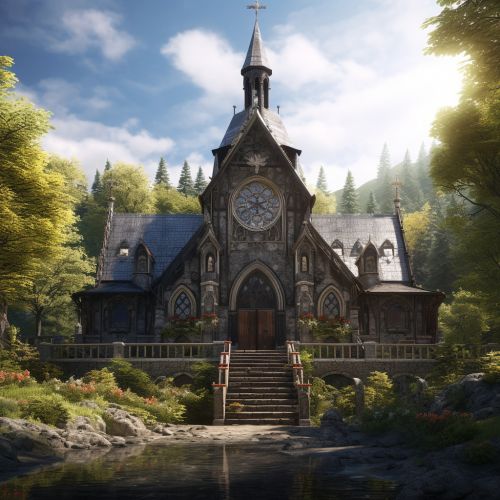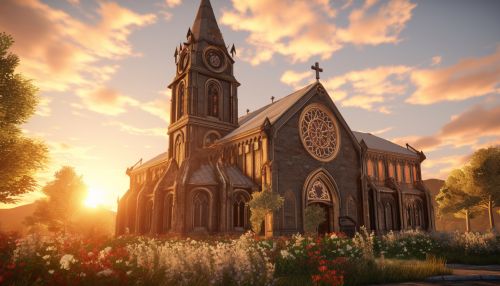Roman Catholic Church
Origins and Early History
The Roman Catholic Church, also known simply as the Catholic Church, is the largest Christian church and one of the oldest religious institutions in the world. The church traces its origins to Jesus Christ in the 1st century AD, and considers its bishops to be the successors to Christ's apostles, with the Pope, who is the bishop of Rome, being the successor to Saint Peter.
The Roman Catholic Church was integral to the development and spread of Christianity during the Roman Empire. The church's teachings were formalized at ecumenical councils, including the Council of Nicaea in 325 AD, which affirmed the concept of the Holy Trinity.


Beliefs and Practices
Central to the Roman Catholic Church's beliefs is the doctrine of the Holy Trinity, which holds that God is one but exists as three persons: God the Father, God the Son (Jesus Christ), and God the Holy Spirit. The church also teaches that salvation is achieved through faith in Jesus Christ and obedience to God's commandments.
The church practices seven sacraments: Baptism, Confirmation, Eucharist, Penance, Anointing of the Sick, Holy Orders, and Matrimony. These sacraments are considered outward signs of inward grace, instituted by Christ for sanctification.
Structure and Governance
The Roman Catholic Church is hierarchical, with the Pope at its head. The Pope is elected by the College of Cardinals, and his authority is absolute within the church. Below the Pope are bishops, who oversee dioceses, and priests, who serve in local parishes.
The church is governed by a system of canon law, and its official teachings are contained in the Catechism of the Catholic Church. The church's central administration, the Holy See, is in Vatican City, an independent city-state enclaved within Rome, Italy.
Influence and Impact
The Roman Catholic Church has had a profound influence on Western civilization. It played a key role in the development of Western art, culture, science, and philosophy. The church established universities in the Middle Ages, and has been a major patron of the arts throughout history.
The church's social teachings have also shaped public policy and social norms in many countries, particularly on issues like abortion, contraception, and marriage.
Controversies and Challenges
Like any large institution, the Roman Catholic Church has faced controversies and challenges. These include the Protestant Reformation in the 16th century, which led to a major schism in Christianity, and more recent issues such as the sexual abuse scandal involving clergy.
The church has also faced criticism for its teachings on issues like contraception and homosexuality, and for its role in historical events like the Crusades and the Inquisition.
